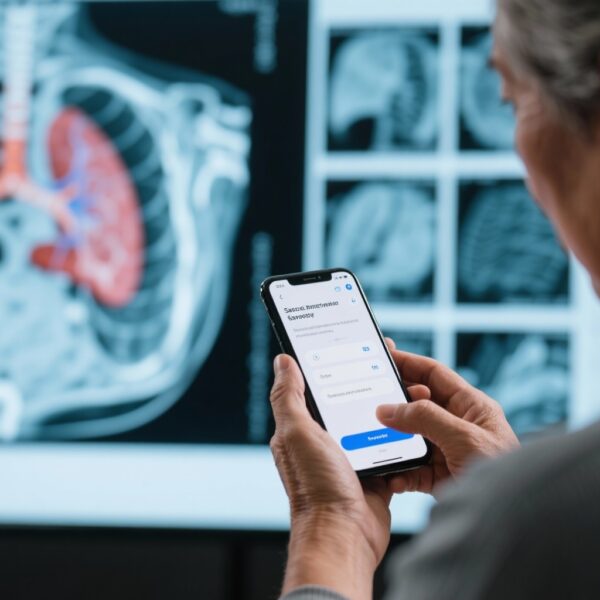Highlight
1. AMALFI is a pragmatic randomized controlled trial assessing remote, continuous ECG patch monitoring to detect asymptomatic atrial fibrillation (AF) in high-risk older adults in UK primary care.
2. Over 5,000 participants aged ≥65 years with elevated stroke risk scores were randomized to 14-day ECG monitoring versus usual care.
3. Primary outcome will measure new AF detection rates at 2.5 years, with secondary and exploratory outcomes addressing long-term AF diagnosis, anticoagulation use, and major clinical events.
4. The study will also evaluate the cost-effectiveness of this AF screening strategy to inform future nationwide screening policies.
Study Background
Atrial fibrillation (AF) is the most common sustained cardiac arrhythmia and a major contributor to ischemic stroke due to embolism of atrial thrombi. Many AF cases remain asymptomatic and undiagnosed until a severe stroke occurs. Early detection of asymptomatic AF in high-risk individuals can enable timely initiation of oral anticoagulation, markedly reducing stroke incidence. Some international guidelines recommend AF screening, but the long-term clinical effectiveness and cost-effectiveness of AF screening programs remain uncertain, particularly in routine primary care settings.
Existing data suggest that increased AF detection and consistent anticoagulation use over extended periods are crucial to translating screening into meaningful stroke reduction. There is a need for randomized controlled trials with long follow-up durations evaluating sustained AF detection, management, and clinical outcomes to justify widespread screening implementation.
Study Design
AMALFI (Active Monitoring for AtriaL FIbrillation) is a large, pragmatic randomized controlled trial conducted in 27 UK primary care practices. It included community-dwelling adults aged 65 years or older with elevated stroke risk defined as CHA2DS2-VASc score ≥3 (men) or ≥4 (women), but no prior AF or atrial flutter diagnosis.
Participants (N=5,040) were randomized to either:
• Intervention: remote screening with a 14-day continuous ECG monitoring patch (Zio XT from iRhythm Technologies) mailed to participants, who wore and returned it by mail for analysis.
• Control: routine usual care without any active screening intervention.
Patch ECG data were analyzed by a deep-learning AI algorithm and confirmed by cardiographic technicians. Clinically actionable arrhythmia findings, including AF episodes lasting ≥30 seconds, were reported promptly to participants’ general practitioners (GPs) via secure email. GPs received supplemental letters summarizing AF presence, burden, and management guidance per existing guidelines but retained discretion over patient care.
The primary endpoint is the rate of new AF diagnosis at 2.5 years after randomization. Secondary endpoints include the time spent diagnosed with known AF at 5 years. Exploratory endpoints assess time-to-AF detection over 2.5 and 5 years, anticoagulation exposure, hospitalizations, ischemic stroke incidence, major bleeding, and all-cause and cardiovascular mortality.
Key Findings
Between 2019 and 2022, AMALFI successfully recruited and randomized 5,040 participants with a mean age of 77 (±6) years; 46.8% were female. The median CHA2DS2-VASc score was 4 (IQR 3–5), confirming a high stroke risk population.
Participants allocated to screening received ECG patches and returned them by mail, demonstrating the feasibility and acceptability of remote screening in a real-world primary care setting. AF detection rates and clinical event outcomes are under active follow-up with data collection from primary care records, national prescription databases, hospital admissions, and mortality registries.
This comprehensive follow-up strategy will allow evaluation not only of AF detection but also of sustained anticoagulation use, clinical outcomes such as stroke prevention, bleeding risks, cardiovascular hospitalizations, and overall mortality, alongside health economic analyses examining cost-effectiveness.
Although the final outcome data are anticipated in 2025 and 2027, the trial’s large scale, pragmatic design, and integration with routine UK primary care data sources provide strong potential to generate clinically actionable insights on long-term benefits and harms of AF screening.
Expert Commentary
The AMALFI trial addresses a critical gap in AF screening evidence by focusing on long-term follow-up and patient-important outcomes rather than short-term detection rates. The remote patch-based continuous ECG monitoring combined with AI-assisted analysis offers a scalable approach that can be delivered by mail without burdening clinical services, fitting well into modern primary care workflows.
However, translating AF detection into improved stroke outcomes depends on GPs acting promptly on actionable findings with appropriate anticoagulation prescribing. The trial’s design allowing GP discretion reflects real-world practice but may introduce variability in management, which will be informative when interpreting effectiveness and implementation potential.
AMALFI complements and extends findings from previous screening studies such as the STROKESTOP and LOOP trials by using longer monitoring duration and focusing on a UK healthcare setting, potentially informing national policy.
Conclusion
The AMALFI study is poised to provide robust randomized evidence regarding the long-term clinical and economic impact of remote screening for asymptomatic AF in older adults at elevated stroke risk. Its methodology balances technological innovation with pragmatic clinical implementation, and its results may inform future UK-wide AF screening guidelines and public health strategies.
Pending data releases in 2025 and 2027 will be critical to understanding how sustained AF detection and management through remote patch ECG monitoring influence stroke prevention, healthcare utilization, and cost-effectiveness in routine practice.
Funding and ClinicalTrials.gov
The AMALFI trial was funded and coordinated within UK primary care networks. The study registration number is ISCRTN 15544176.
References
Wijesurendra R, Pessoa-Amorim G, Buck G, Harper C, Bulbulia R, Jones NR, A’Court C, Kurien R, Taylor K, Casadei B, Bowman L. Active Monitoring for AtriaL FIbrillation (AMALFI): Rationale, protocol, and pilot for a pragmatic, randomized, controlled trial of remote screening for asymptomatic atrial fibrillation. Am Heart J. 2025 Dec;290:310-324. doi: 10.1016/j.ahj.2025.07.004. Epub 2025 Jul 16. PMID: 40680808.



